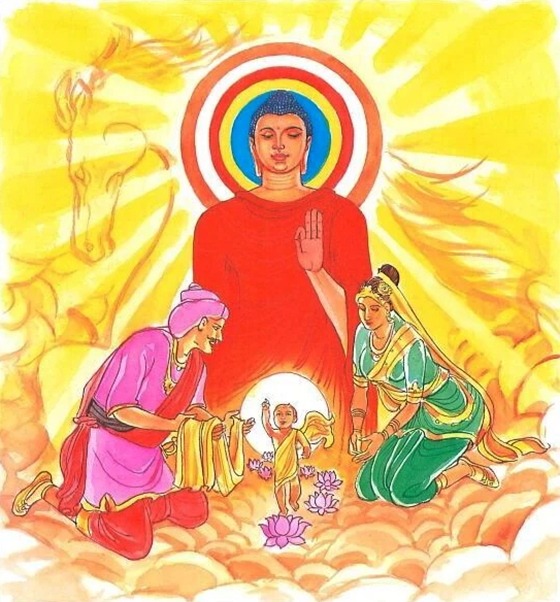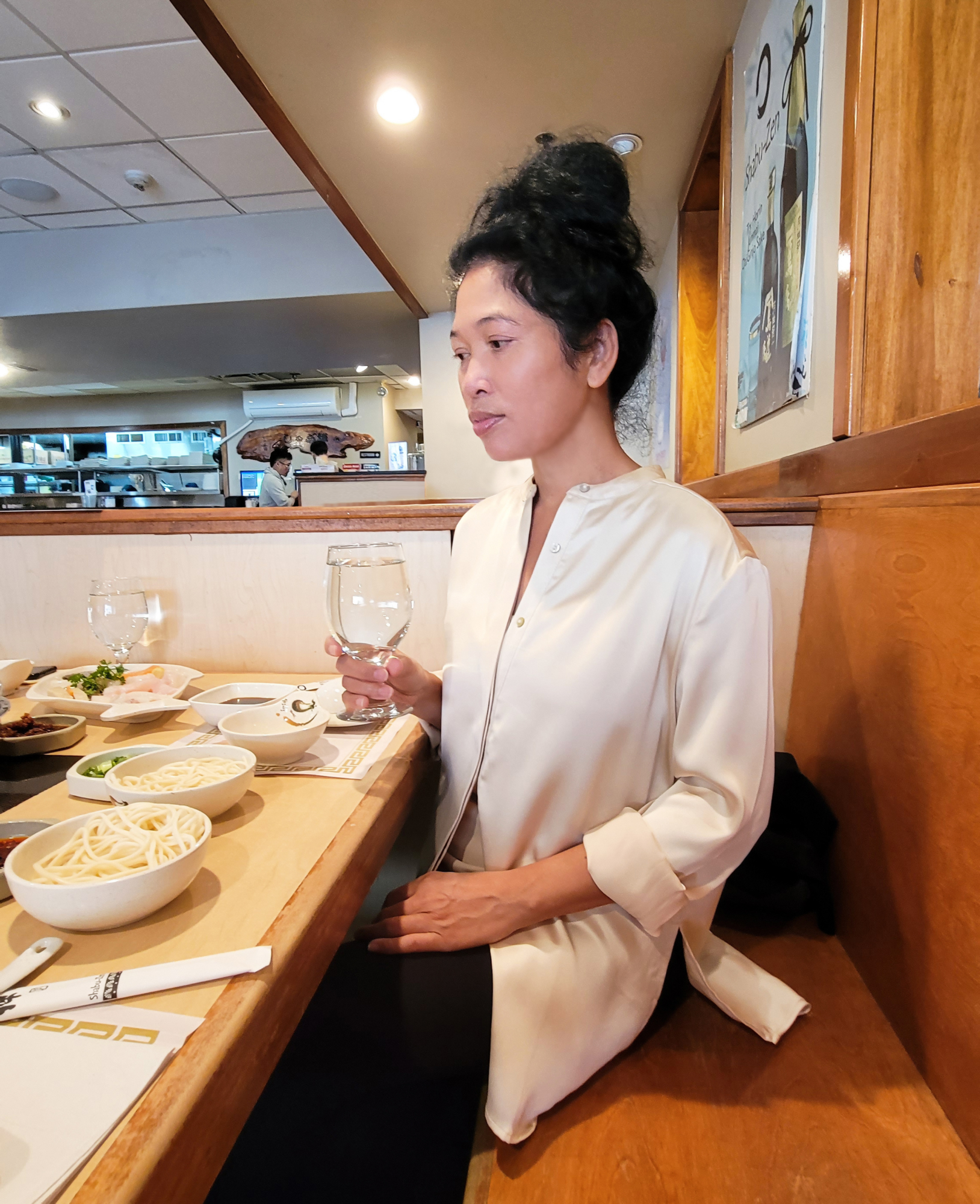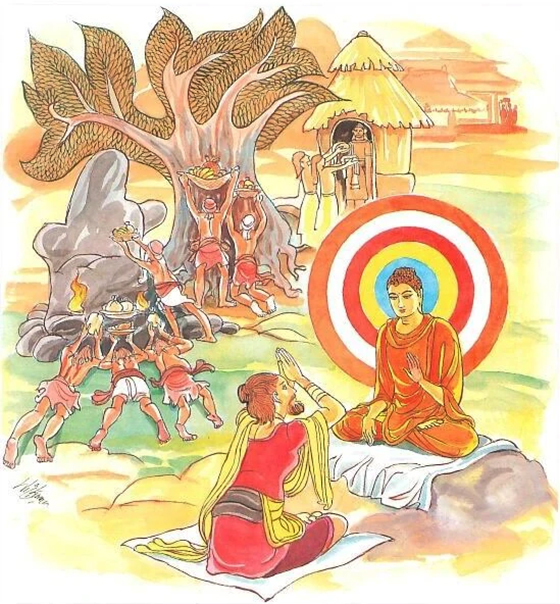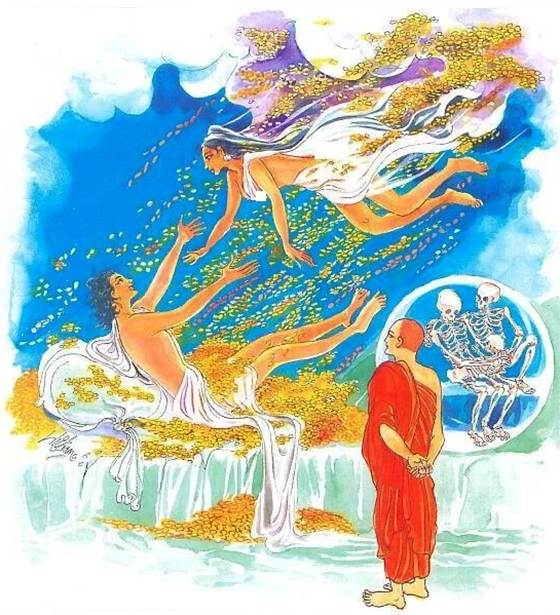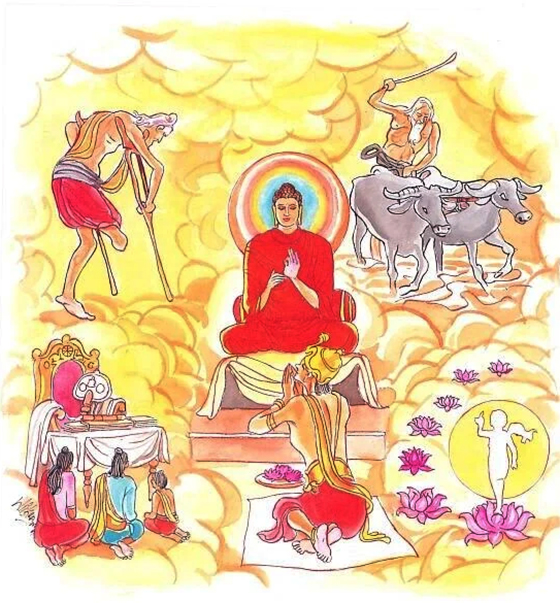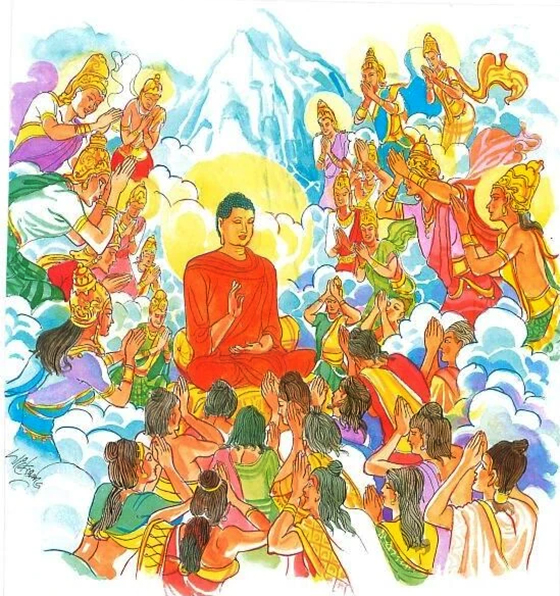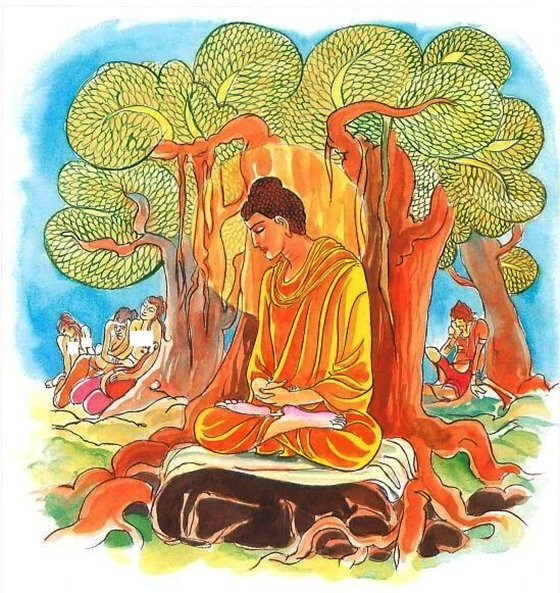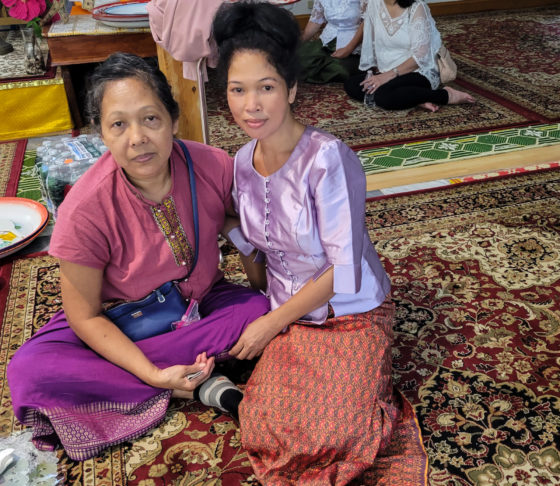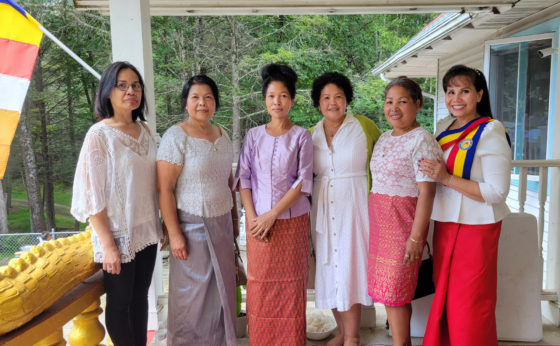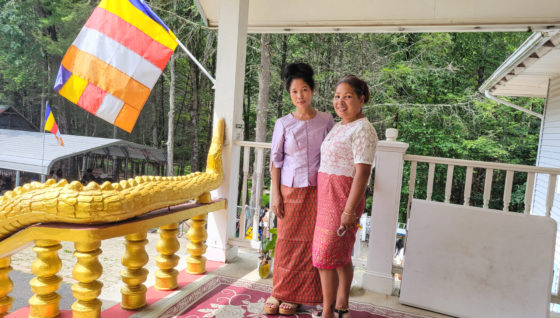The Story of the Question Raised by Thera Ananda
Verse 193: It is hard to find the noblest of men; he is not born everywhere nor in every clan. To whatever clan such a wise man is born, that clan prospers.
- purisajanno: According to the Commentary, a Buddha is intended.
-
sukhamedhati: lit., attains happiness or thrives in happiness.
The Story of the Question Raised by Thera Ananda
While residing at the Jetavana monastery, the Buddha uttered Verse (193) of this book, with reference to the question raised by Thera Ananda.
One day, Thera Ananda pondered thus: “Our Teacher has told us that thoroughbreds of elephants are born only among Chaddanta and Uposatha breeds, that thoroughbreds of horses are born only among the Sindh breed, that thoroughbreds of cattle are born only among the Usabha breed. Thus, he had talked to us only about the thoroughbreds of elephants, horses, and cattle, but not of the noblest of men (purisajanno).”
After reflecting thus, Thera Ananda went to the Buddha, and put to him the question of the noblest of men. To him the Buddha replied, “Ananda, the noblest of men is not born everywhere, he is born only among Khattiyamahasala and Brahmanamahasala, the wealthy clans of Khattiya and Brahmana.” Continue reading


